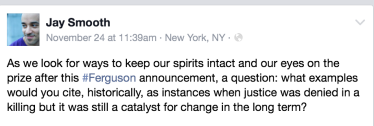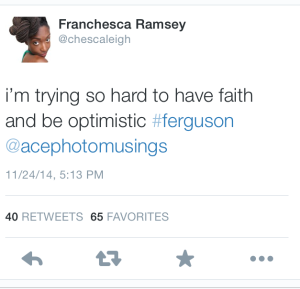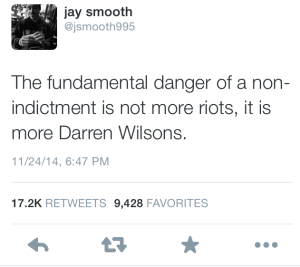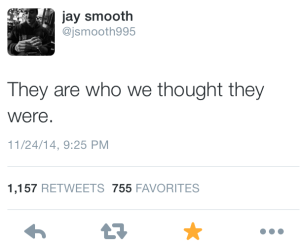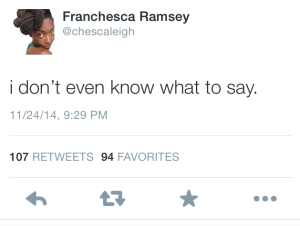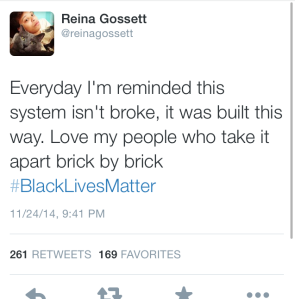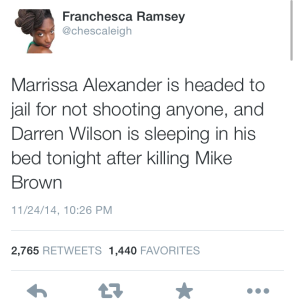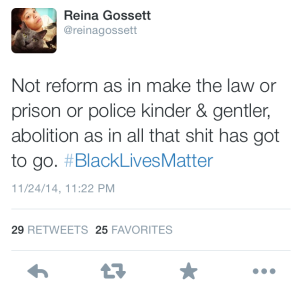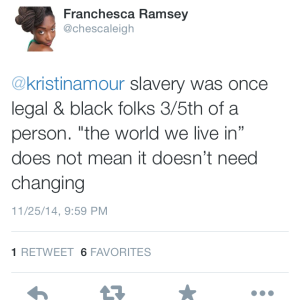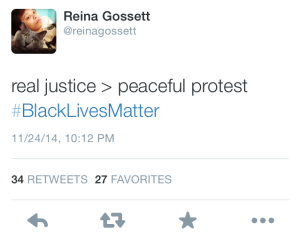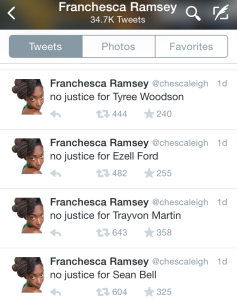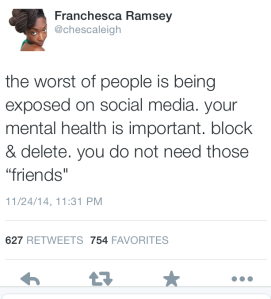There have been so many blog posts written within the past three months since Michael Brown’s murder and especially within the past 48 hours documenting the anger, the sadness, the rage in the aftermath of what has (and is) taking place in Ferguson (read this or this or this just for starters). There is nothing that I can say to the internet world that hasn’t already been said and more importantly, as a white woman in this post-non-indictment America, this is my time to listen and not take up so much space.
So, I wake up and fall asleep to Twitter. I’m listening to the black and brown voices impacted by Michael Brown’s death, the events in Ferguson, and systemic racism. The words of former and future Critical Social Justice keynote speakers repeatedly show up in my feed. For Jay Smooth and Reina Gossett, they have continued voicing the message of questioning power and privilege that they left with us when they visited UMBC. For Franchesca, she is telling us an important story about creating brave spaces in the face of injustice which I know she’ll continue to share when she is here on campus. Here is some of what they’re saying:
As they waited for the outcome of the Grand Jury:
(he then followed up with this great video
about this specific tweet, riots, and human limits)
When they heard the news:
Ways they were engaging in difficult dialogues:
And creating brave spaces for truth to be heard:
Reminders about self-care:
These are just a sampling of the conversations our Critical Social Justice keynote speakers of past and present are having online. I encourage you to follow them, learn from them, and reflect on their words. For white folks, like myself, thinking about their role in conversations related to Michael Brown, Ferguson, racism, and anti-blackness… know you do have one that includes examining your white privilege, understanding we operate within a white supremacy, and being an ally in dismantling racism. And on that last part of being an ally, here are five tips for being an ally from Franchesca.
